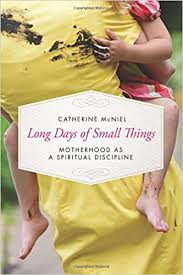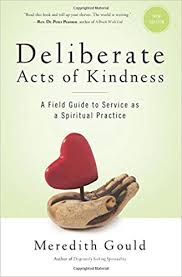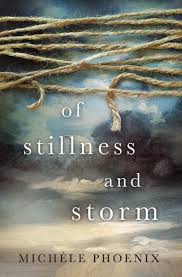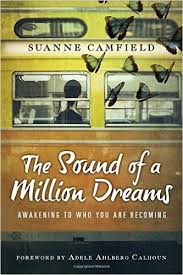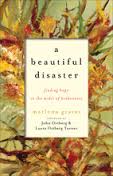 One of the first things that struck me about Marlena Graves’ writing was how very grounded she was. She could provide great analysis about disturbing cultural trends while at the same time managing to point her readers in the direction of the Jesus she loved. We’d first connected several years ago via our contributions to Christianity Today’s popular Her.meneutics blog. (Click here to have a peek at some of the topics Marlena has tackled for the site.) She has written about tough topics ranging from female masturbation to the Trayvon Martin verdict to the social and spiritual effects of poverty with grace, intelligence and wisdom far beyond her years. Hers is a voice worth listening to if you are in search of a writer who is willing to ask hard questions about church and culture from a position of deeply-rooted faith and spiritual practice.
One of the first things that struck me about Marlena Graves’ writing was how very grounded she was. She could provide great analysis about disturbing cultural trends while at the same time managing to point her readers in the direction of the Jesus she loved. We’d first connected several years ago via our contributions to Christianity Today’s popular Her.meneutics blog. (Click here to have a peek at some of the topics Marlena has tackled for the site.) She has written about tough topics ranging from female masturbation to the Trayvon Martin verdict to the social and spiritual effects of poverty with grace, intelligence and wisdom far beyond her years. Hers is a voice worth listening to if you are in search of a writer who is willing to ask hard questions about church and culture from a position of deeply-rooted faith and spiritual practice.
It is this rock-solid commitment to nurturing spiritual formation in the lives of her readers that led her to write the new Brazos Press release, A Beautiful Disaster: Finding Hope In The Midst of Brokenness. In the tradition of the early Desert Fathers and Mothers, as well as the saints since then who’ve written their own accounts of the way in which God leads us through suffering, silence and a disconcerting sense of spiritual disconnection into the windswept, barrenness of the metaphorical desert in order to strip us in love of our wrong ideas. In the kind of paradox that highlights the economy of the kingdom of God, our brokenness is the place from which we discover the abundance of God. I commend Marlena’s book to you if the “Five Easy Steps” formulae in which Christian principles for self-improvement have left you impoverished and frustrated. A Beautiful Disaster is about leaving simplistic approaches behind and following Jesus out into the wilderness of the broken parts of your own life and discovering that he has been waiting there for you all along.
I asked Marlena to tell us a little bit more about her book:
Q. What led you to write A Beautiful Disaster?
A. As young as ten years old, I’d cry out to God, “ Please, father and mother me. Show me how to live!” Here I was in a child-sized body trying to solve adult-sized problems. My parents loved my siblings and me dearly and we loved them. But they were trying to figure out how to live themselves. And so, I grew up in a household full of daily upheaval. Throughout my childhood and teenage years, I experienced a lifetime of crises squeezed into a short period of time. These included:
Poverty- the kind where we often had nothing to eat except school lunches. I remember opening the refrigerator door only to stare into a vast emptiness. My abuelita, who lived with us, stilled our hunger by making flatbread out of oil, flour, salt, and water. Many times we had no good source of heat in the dead of winter because we couldn’t afford the astronomical prices of fuel oil needed to fill our tank.
Our fireplace in the living room didn’t work properly. It only heated the immediate area. So at night, I’d bury myself under as many covers as possible. I loathed awakening to the smoke filled air that stung my lungs and then sliding out of bed into the frigid cold. I’d climb on the bus mortified because the smell of smoke clung to my hair and clothes. I could do nothing about it.
I hated holidays, especially Christmas. There were so many times when we had nothing—not a tree, not a gift, no family to visit or come visit and no special meal. It was like many other days only worse because it was supposed to be a day of warmth and joy. Moreover, we spent many holidays like Christmas and Thanksgiving cutting and hauling wood so my dad could earn gas money to get to work. When I left for college, I vowed that I’d never split and haul wood again.
Loneliness – we lived out in the country. Our closest neighbors were ¼ to a ½ mile away. We spent a lot of time alone among ourselves. The school was too far away to be too involved in activities. Friends were long distance; remember long distance?
The effects of mental illness on the family – DUIs, adultery, daily chaos, depression, and confusion of reality
A house fire
The effects of my own bad decisions with romantic relationships
There wasn’t much to do where I lived—I was hemmed in by my geographical isolation. So, after I was done with whatever homework and chores I had to do, I’d spend time reading the Bible. For about four years, from the ages of 10-14, I’d spend 2-3 hours a day reading the Bible. I spent a good chunk of that time reading the Old Testament. I identified strongly with those in exile, especially the Hebrew people. I could see myself and situation in the stories of the their suffering.
I also started to believe that God could and did act on my behalf in the way that he did for the Israelites and others in the Bible. I knew that their God was my God and that in Jesus Christ, I was not forgotten or invisible. Because of our isolation, I didn’t know how different my life was from others. I attended church, but watching my devout Roman Catholic with a third grade education struggle daily to read the Bible, reading the Scriptures on my own, praying, and listening to radio preachers on the local Christian radio station were how I was initially formed in the way of Jesus.
And in college and afterward, I realized that those closest to God spent considerable time in the physical desert and also experienced protracted internal wildernesses. Abraham, Moses, Miriam, Hannah, David, Elijah, Jesus, John the Baptist, Paul, John on Patmos, church fathers and mothers, those throughout history, and even us today have had our deserts.
They learned obedience through suffering. So, the suffering I loathed and wouldn’t wish upon anyone else, that very thing, whether they were major crises or moments of quiet desperation, in that desert, I saw God. To my surprise, God used my disasters to form me into the image of Jesus. And I think that can be the same for all of us. That’s why I wrote the book.
Q.Who are you trying to reach with this book?
A. Those who’ve felt forgotten by God and invisible. Those who are full of fear because of life circumstances. Those who are waiting on God to answer prayer, and those who doubt and struggle with the problem of evil. These are all wilderness experiences.
Q. In your introduction you state that the desert is “a blessing disguised as a curse”. In what ways do you see people running from/fighting the desert in their lives? Why are we so uncomfortable with the notion of a desert – or of suffering /privation that we imagine goes with desert?
You know, I think we’re all inclined to do whatever is within our power to anesthetize ourselves against suffering whether the suffering is a result of our own decisions or things outside of our control.
A Beautiful Disaster reminds us that the desert may be precisely where God wants us to be. Thank you, Marlena.



